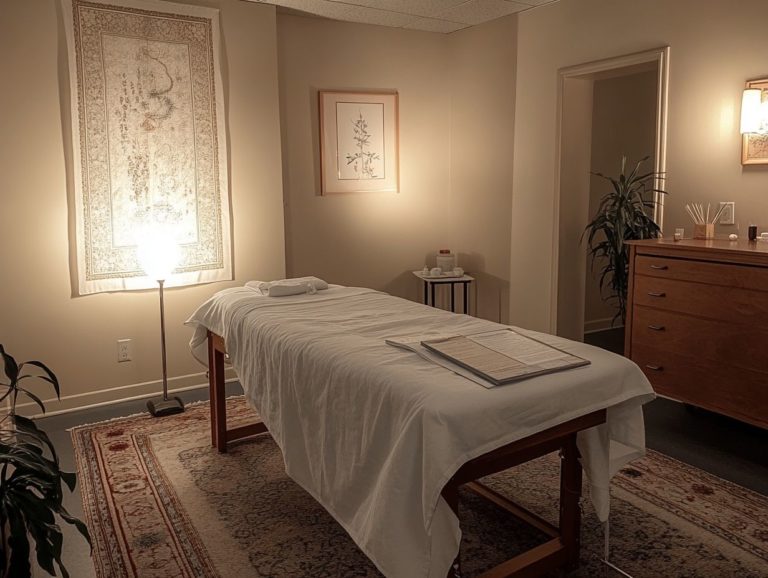Can Acupuncture Help with Anxiety?
Anxiety impacts millions and presents a variety of symptoms that can disrupt daily life.
This exploration delves into traditional Chinese medicine and acupuncture, shedding light on how these practices view the flow of energy, or vital energy in your body, and its connection to mental health.
You ll discover how acupuncture might provide relief, supported by research, while also learning what to expect during a session.
We will discuss complementary therapies and emphasize the importance of consulting healthcare professionals to guide your journey.
Join this insightful exploration to deepen your understanding of anxiety and uncover holistic solutions tailored for you.
Contents
Key Takeaways:
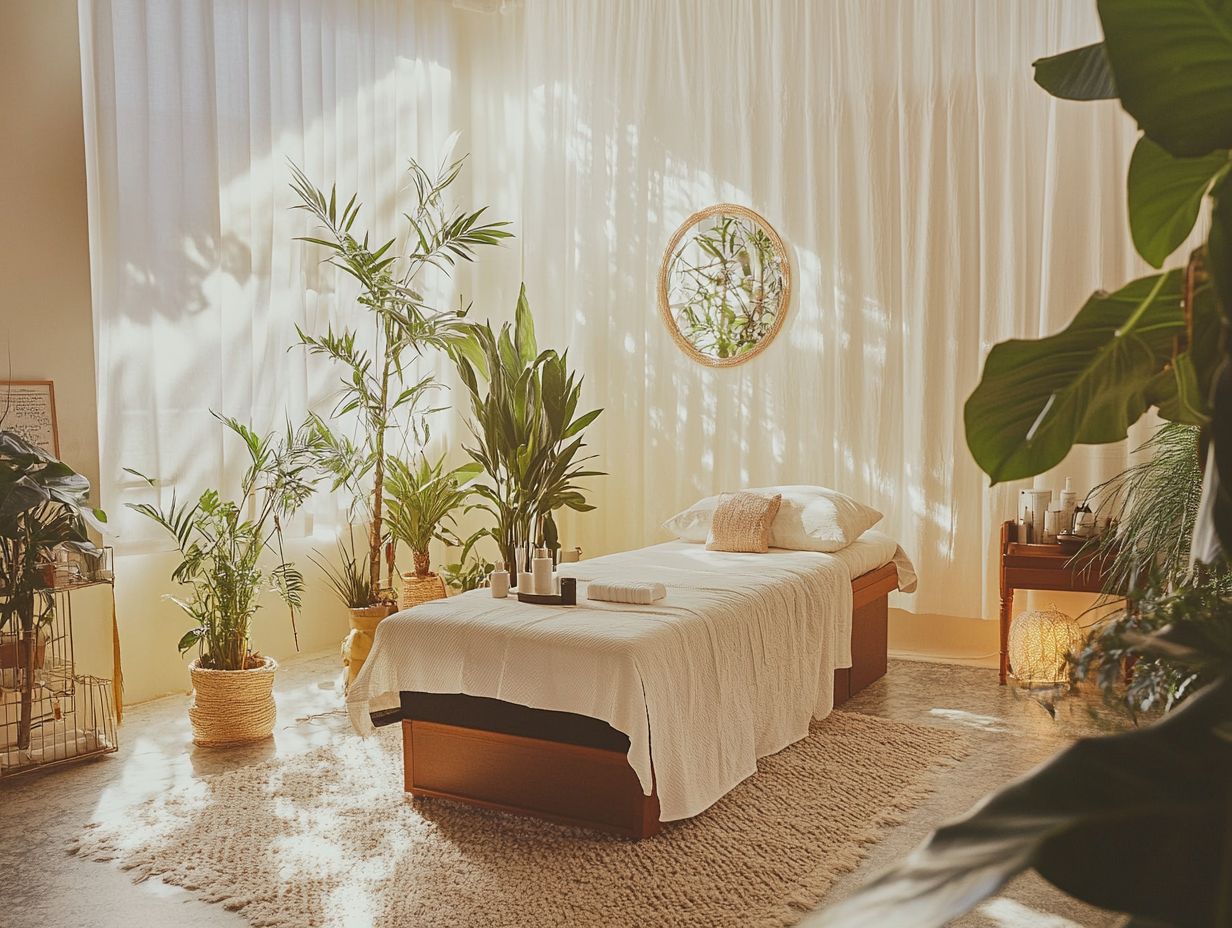
Acupuncture can be a complementary therapy for managing anxiety. It aims to restore your body’s energy balance and promote relaxation. Research suggests that acupuncture may positively affect anxiety symptoms, but it should be used alongside other treatments and under the guidance of a healthcare professional. Finding a qualified acupuncture practitioner and discussing a tailored treatment plan can help individuals with anxiety find relief and improve their overall well-being.
Understanding Anxiety
Anxiety is a complex mental health issue that affects millions globally, manifesting in various forms like Generalized Anxiety Disorder, Panic Disorder, and Social Anxiety Disorder.
Recognizing its symptoms is essential, as they often include overwhelming feelings of fear, worry, and unease, disrupting daily life.
These feelings may arise from various factors, such as chronic stress or past trauma, leading to emotional responses that affect both mental and overall health.
Symptoms and Causes
The symptoms of anxiety disorders can manifest in a range of emotional distress, including excessive worry and irritability, as well as physical signs like a racing heartbeat and sweating.
You might find it hard to concentrate or feel an unsettling sense of impending doom, which can interfere with daily activities and lower your quality of life.
Various factors contribute to these mental health conditions, including genetics, environmental stressors, and personal experiences. Chronic stress often worsens these symptoms, creating a cycle that feels overwhelming.
A healthcare provider plays a crucial role in identifying these signs and symptoms, helping you navigate their complexities. Through evaluations and discussions, they can pinpoint underlying causes and suggest tailored interventions that address your emotional and physical experiences of anxiety.
This collaborative approach enhances your understanding of the condition and sets the stage for effective management strategies that can truly make a difference.
Traditional Chinese Medicine and Acupuncture
Traditional Chinese Medicine (TCM) offers a holistic approach to health, focusing on restoring balance within your body.
Central to this methodology is acupuncture, which involves the precise insertion of fine needles at specific points to enhance the flow of vital energy throughout your system.
Drawing from ancient philosophies, TCM addresses a wide range of health issues, including anxiety, offering a pathway to overall well-being.
The Role of Qi and Meridians
In Traditional Chinese Medicine, Qi flows through meridians in your body. Any blockage can lead to various physical and emotional health issues, including anxiety.
These meridians connect different organs and systems, allowing Qi to circulate freely. When this flow is disrupted, you may experience symptoms ranging from chronic fatigue to heightened emotional stress.
Acupuncture focuses on unblocking these pathways by inserting fine needles at specific points, stimulating the flow of Qi. This encourages your body s natural healing processes, promoting relaxation and alleviating anxiety.
This holistic approach tackles your symptoms head-on while addressing underlying imbalances, highlighting the connection between mind and body for overall wellness.
How Acupuncture May Help with Anxiety
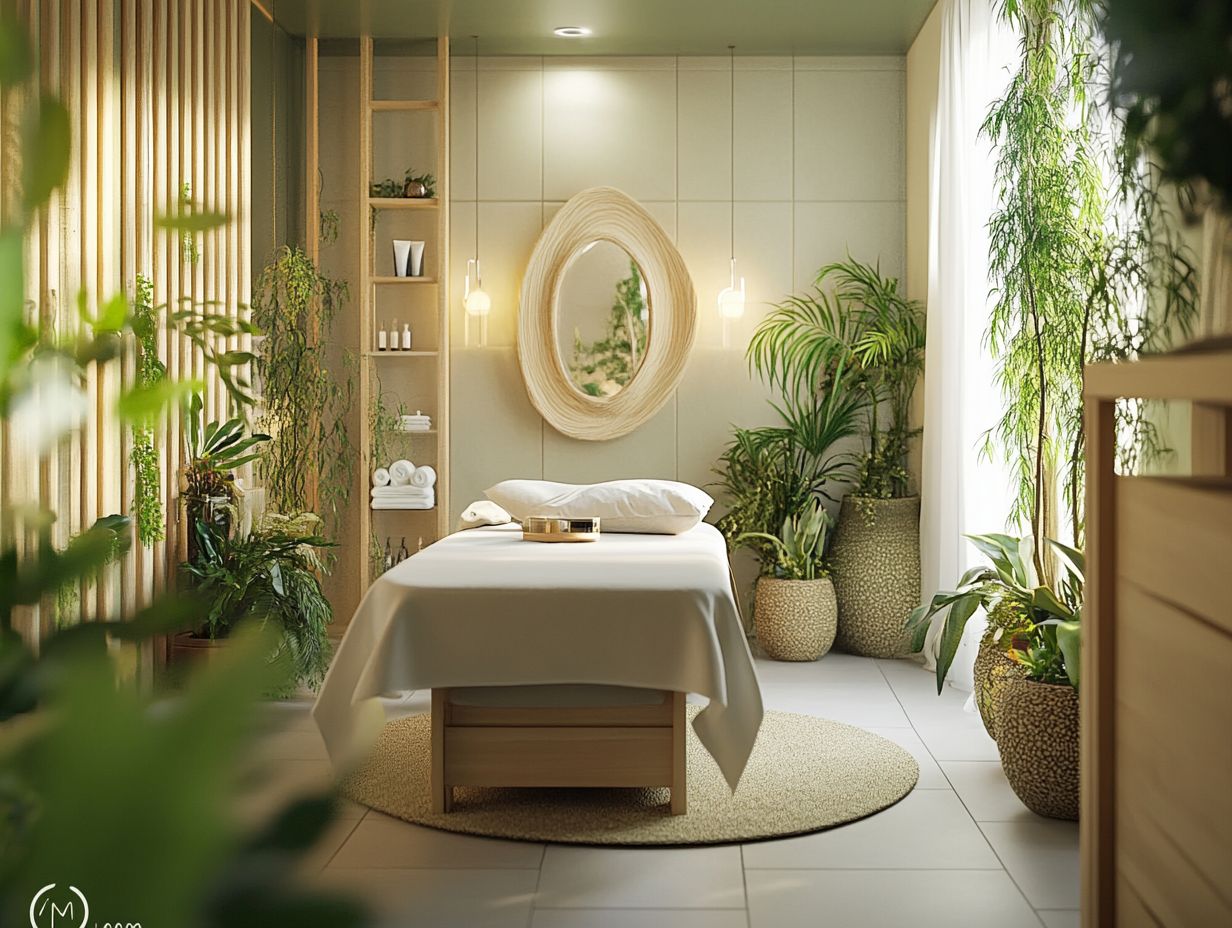
Acupuncture has been thoroughly examined for its potential therapeutic benefits in managing anxiety and alleviating symptoms. Clinical research indicates that many patients experience a reduction in anxiety symptoms through this treatment.
By focusing on specific acupuncture points, it not only offers immediate relief but also promotes a longer-term healing journey, effectively addressing the underlying causes of anxiety disorders.
Research and Evidence
Numerous studies have delved into the effectiveness of acupuncture as a treatment for anxiety, unveiling promising results that highlight its therapeutic potential.
Take, for example, a randomized controlled trial published in the journal JAMA Psychiatry. This study examined the impact of acupuncture on anxiety levels among participants diagnosed with generalized anxiety disorder. With a rigorous methodology, it compared the effects of authentic acupuncture to a sham treatment over several weeks.
The results were compelling: those who received genuine acupuncture experienced significantly reduced anxiety symptoms, as measured by standardized scales such as the Hamilton Anxiety Rating Scale.
A meta-analysis of various studies conducted over the past decade further corroborated these findings, suggesting that acupuncture not only alleviates anxiety but may also enhance overall emotional well-being.
This research shows that acupuncture is a valuable option for managing anxiety.
What to Expect During an Acupuncture Session
During an acupuncture session, you can anticipate a serene environment where a licensed practitioner performs a comprehensive assessment before introducing the treatment plan with acupuncture needles.
This initial evaluation is crucial. It ensures that the treatment is specifically tailored to address your unique anxiety symptoms and health conditions, ultimately enhancing the therapeutic benefits of your session.
Process and Techniques
The acupuncture process involves a careful choice of points that stimulate your body s natural healing abilities, promoting a vital relaxation response essential for alleviating anxiety.
During a typical session, the practitioner uses thin, sterile needles, gently inserting them at selected points along your body s meridians. You might feel a slight sensation perhaps a tingling or a warmth as the needles are positioned.
Once the needles are in place, the practitioner may gently manipulate them to enhance their effects, encouraging energy flow and further facilitating relaxation. After the treatment, you may find yourself enveloped in a sense of calm and tranquil balance.
To fully embrace the benefits of the session, you ll likely receive guidance on post-treatment care, such as the importance of staying hydrated and allowing yourself to rest.
Other Complementary Therapies for Anxiety
Alongside acupuncture, you can explore a range of complementary therapies that may enhance your anxiety management.
Consider incorporating mindfulness practices, herbal medicine, and self-care techniques into your routine. This holistic approach to well-being can truly make a difference in how you feel.
Mindfulness and Herbal Supplements
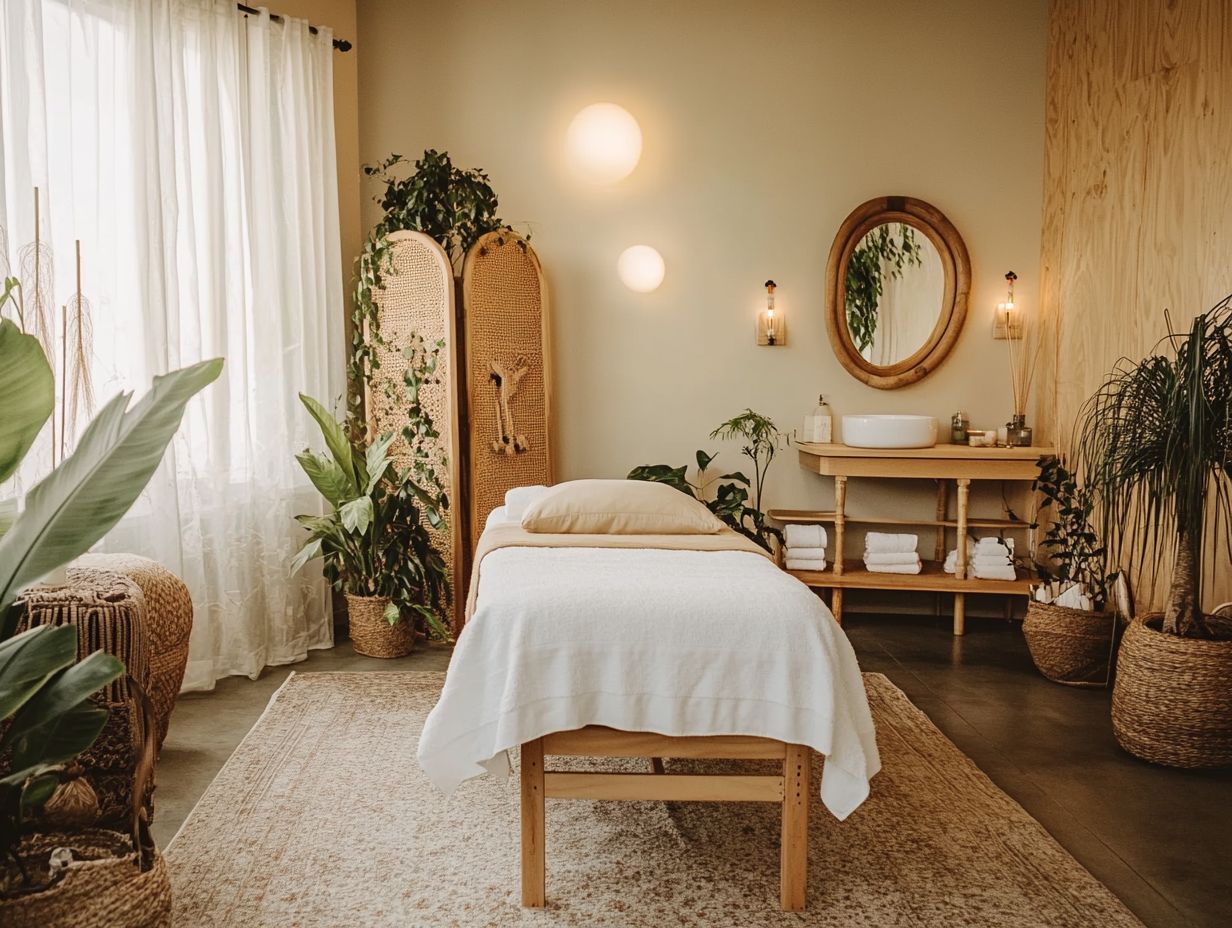
Mindfulness practices and herbal supplements can elevate your self-care game, complementing acupuncture treatment for anxiety and fostering a truly holistic approach to mental health.
By weaving techniques like meditation and deep breathing into your daily routine, you can cultivate a profound sense of calm and centeredness an essential foundation for managing anxiety symptoms.
These practices not only bolster your emotional resilience but also enhance your self-awareness, enabling you to navigate stressors with greater effectiveness.
Consider specific herbal supplements such as ashwagandha and chamomile; they have been shown to promote relaxation and uplift your mood.
When combined, these approaches create a balanced strategy for addressing anxiety, enabling you to take charge of your mental well-being through a more integrative and natural pathway.
Try acupuncture today and experience the benefits for yourself!
Consulting with a Healthcare Professional
Consulting with a healthcare professional is a crucial step to effectively manage anxiety. Tailoring your treatment plan can truly change your life. This plan may encompass various approaches, such as acupuncture, lifestyle modifications, and additional treatments that support your care.
Your well-being deserves a thoughtful strategy tailored to your individual needs.
Finding the Right Practitioner and Treatment Plan
You need the right licensed practitioner to create an effective treatment plan. This plan should address your specific anxiety management needs.
When choosing a qualified professional, consider several factors, including their credentials, experience, and treatment approach. A comprehensive patient assessment is key. It helps pinpoint the unique symptoms and health conditions that may shape how anxiety manifests for you.
Engage in open communication and share your personal experiences. This ensures that the treatment plan is customized to address your symptoms and enhance your overall well-being. This collaborative process deepens understanding and increases the chances of success.
Frequently Asked Questions
Can Acupuncture Help with Anxiety?
Yes, acupuncture has been shown to be an effective treatment for anxiety. This ancient Chinese practice involves inserting thin needles into specific points on the body, which stimulates the body’s natural healing process and promotes relaxation and calmness.
How does acupuncture help with anxiety?
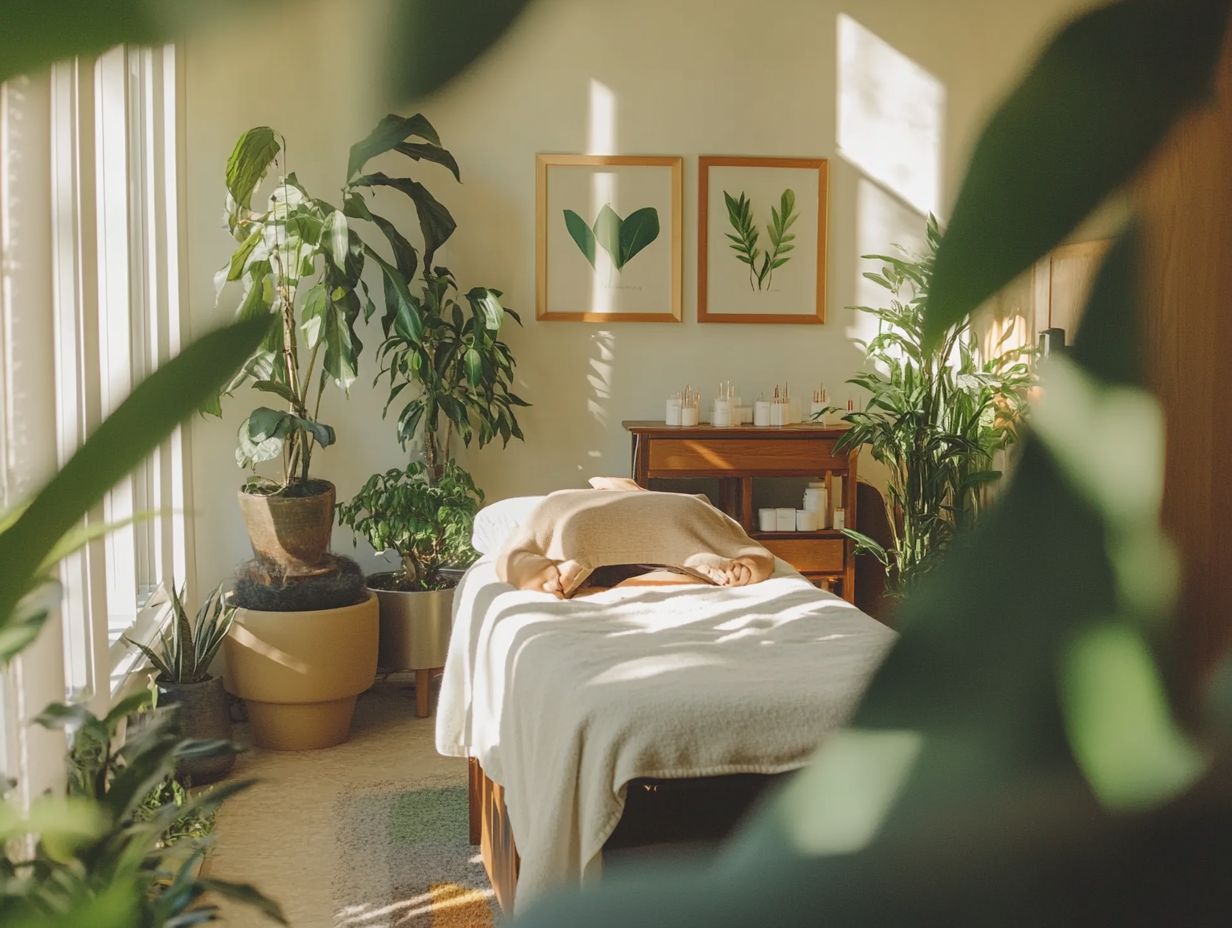
Acupuncture promotes relaxation, reduces stress, and rebalances the body’s energy flow. The needles stimulate the release of endorphins, which are the body’s natural painkillers and mood enhancers. This promotes a sense of well-being and reduces anxiety symptoms.
Is acupuncture safe for treating anxiety?
Yes, acupuncture is generally considered a safe and non-invasive treatment for anxiety. However, it is essential to consult a licensed and experienced acupuncturist to ensure proper treatment and minimize any risks or side effects.
What type of anxiety can acupuncture help with?
Acupuncture can help with different types of anxiety, including generalized anxiety disorder, social anxiety disorder, and panic disorder. Additionally, you may wonder if acupuncture can help with chronic pain, as it can also be beneficial for managing stress and promoting relaxation for individuals without a clinical diagnosis of anxiety.
How many acupuncture sessions are needed for treating anxiety?
The number of acupuncture sessions needed may vary depending on the individual’s condition and response to treatment. Generally, a series of 6-12 sessions is recommended for optimal results, with follow-up appointments as needed.
Are there any other benefits of acupuncture for anxiety?
Yes, acupuncture has many benefits beyond anxiety relief, such as improving sleep, reducing chronic pain, and enhancing overall well-being. It can also be a complementary therapy alongside other anxiety treatments, such as medication and therapy.
Consult a healthcare professional or book an acupuncture session to explore how it may help you in managing anxiety.






